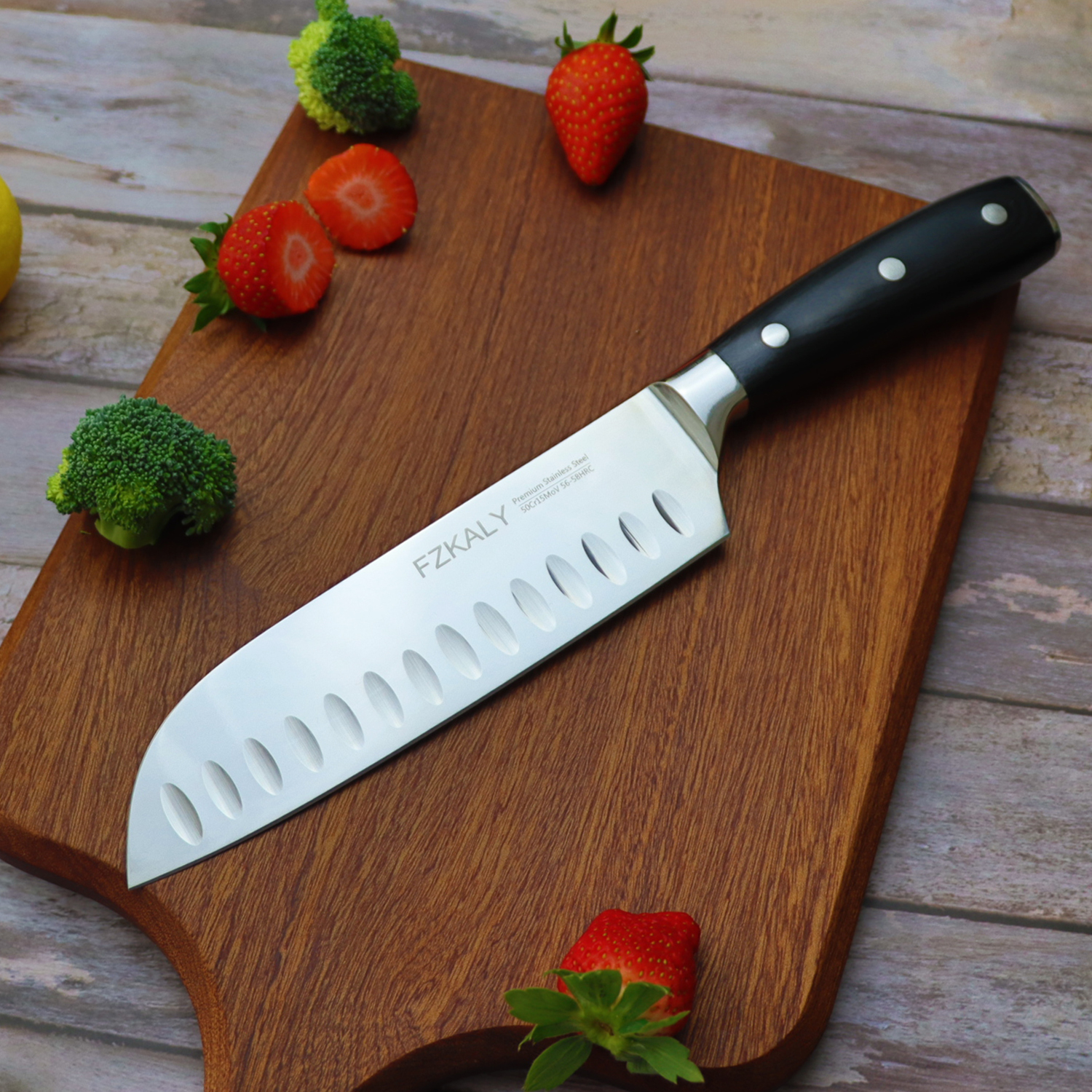Santoku Knives: The Perfect Blend of Ancient Artistry and Modern Innovation
Aug 16,2023 | Fzkaly
Welcome to the world of Santoku knives, where the rich history and traditional craftsmanship meet modern innovation. In this article, we will explore the significance of knives in different cultures and delve into the fascinating story of Santoku knives. Let's start.

History and Tradition of Santoku Knives
Knives have played a vital role in human civilization throughout history. Whether for hunting, warfare, or everyday tasks, these versatile tools have always been indispensable.
Santoku Knives have a long and esteemed history, rooted in ancient traditions and cultures around the world.
In Japan, for example, knives are an integral part of their sword-making heritage, representing courage and honor. Similarly. In China, the art of swordsmanship and the craftsmanship of blades hold deep cultural significance.
From the warrior traditions of ancient Europe to the intricate weapon-making techniques of India, knives have always held a special place in human civilization.
The Legacy of Santoku Knives - Craftsmanship and Techniques
Let's journey back in time to uncover the origins of Santoku knives. Founded by skilled artisans, Santoku knives have been cherished as a traditional craft for centuries. Their meticulous craftsmanship and attention to detail have made them renowned worldwide.
The production of Santoku Knives involves a meticulous process of forging and tempering, ensuring each blade is crafted to perfection. The attention to detail and the pursuit of excellence are evident in every step of the manufacturing process. From selecting the finest materials to honing the blades with precision, Santoku Knives exemplifies the highest standards of quality.
Design Features of Santoku Knives and the Fusion of Tradition and Modernity
Santoku knives boast unique design features that make them stand out. The blade shape, with its curved edge and flat spine, allows for efficient chopping, slicing, and dicing. The handles are crafted from various materials, providing a comfortable and secure grip.
The Santoku balances the importance of preserving the essence of ancient artistry while catering to the demands of contemporary users. Whether you are a professional chef or a passionate home cook, Santoku Knives delivers a perfect balance of form and function.
After having further knowledge about the Santoku knives, You may want to know where to get trusted Santoku. We are here to help.
Where to get trusted Santoku?
Here we recommend Fzkaly Japanese Santoku knives for you.
Fzkaly knives boast extraordinary designs and intricate blade patterns that are rarely seen in the market because crafting these stunning blade patterns requires exceptional craftsmanship. Which can be comparable to renowned brands like Shun.
_1728x.jpeg?w=1600&h=1600) Unlocking the full potential of these knives is easy. The blade patterns facilitate close contact with the food, ensuring optimal cutting results. With their outstanding cutting abilities, Fzkaly Santoku Knives are ideal for a variety of ingredients, including vegetables, fruits, and meats.
Unlocking the full potential of these knives is easy. The blade patterns facilitate close contact with the food, ensuring optimal cutting results. With their outstanding cutting abilities, Fzkaly Santoku Knives are ideal for a variety of ingredients, including vegetables, fruits, and meats.
But that's not all! These knives feature an ergonomic full tang handle that perfectly fits the contours of your hand. The thoughtfully designed handle ensures a comfortable grip, reducing fatigue even during extended periods of use. Whether you're slicing vegetables or busy in the kitchen, the Fzkaly Santoku Knives provide an exceptional cutting experience.
Conclusion
Santoku Knives stands out as a brand that seamlessly combines the wisdom of ancient artistry with the advancements of modern innovation. Their rich history, impeccable craftsmanship, and unique design features make them a worthy contender in the world of cutlery. By embracing tradition and embracing innovation, Santoku Knives provides a range of knives that cater to both the practical and aesthetic needs of their users.
Remember, a Santoku Knife is not just a tool; it's a testament to the craftsmanship, culture, and beauty that knives hold.



